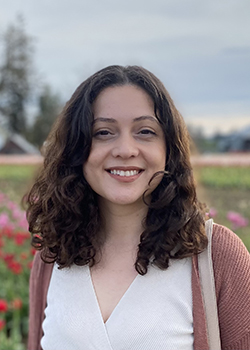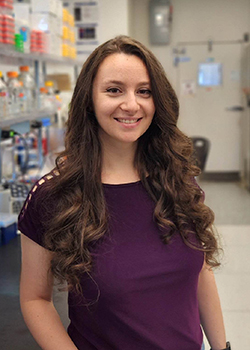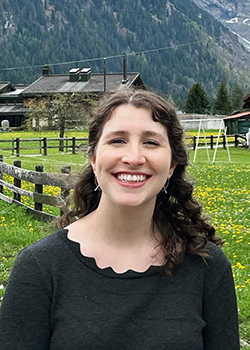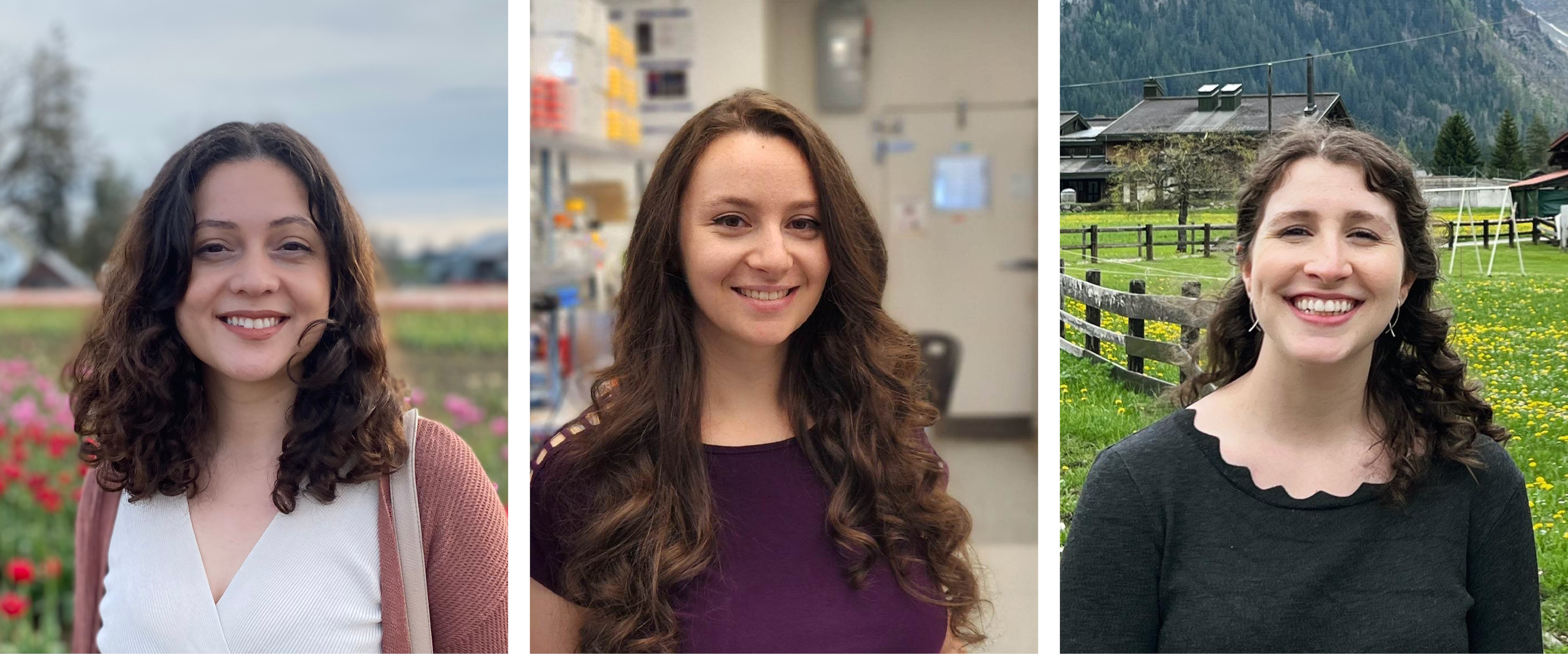Three predoctoral students in the Neuroscience Graduate Program at OHSU were recently awarded the 2023 Lacroute Fellowship.
The Lacroute Fellows Program supports exceptional graduate students conducting innovative research in the Vollum Institute/OHSU Neuroscience Graduate Program. The one-year fellowships cover $24,000 of the students’ stipend and provide a $1,000 allowance for related academic expenses, such as attending scientific conferences or courses.
Congratulations to the 2023 fellows:
- Yessica Santana Agreda, Wright Lab
- Arielle Isakharov, Wright Lab
- Elizabeth Rose, Unni Lab

Yessica Santana Agreda, a third-year neuroscience Ph.D. candidate, is mentored in the lab of Kevin Wright, Ph.D., an associate professor and scientist in the Vollum Institute. Santana Agreda, who earned her B.S. in global studies from the University of California, Santa Barbara, came to OHSU in 2019 as a post-baccalaureate scholar in 2019 as part of the Neuroscience Post-Baccalaureate Initiative, now OHSU PREP.
“As part of the program, I briefly rotated in three labs,” Santana Agreda said. “The last of these rotations was in Dr. Kevin Wright’s lab and from the first week there, I knew that I was going to stay.”
Currently, Santana Agreda’s research uses the retina to study the transcriptional control of neuronal cell fate. By using the retina — which is an extension of the forebrain — as a model system, she hopes to shed light on the instructions that guide the diverse spread and functionality of neurons as they develop into their final states.
“Being a Lacroute Fellow lets me know that my scientific community is supporting me in the best way possible,” Santana Agreda said. “It gives me the faith and courage to continue my dissertation project. To know that the people you trust have in return trusted you to apply to a well-known fellowship means the world to me.”

Arielle Isakharov, a third-year neuroscience Ph.D. candidate, is also mentored in the Wright Lab. After earning her B.S. in computer science from the University of Washington in 2018, Isakharov arrived at OHSU, where she began working as a research assistant in the laboratory of Eric Schnell, M.D., Ph.D., associate professor of anesthesiology and perioperative medicine in the OHSU School of Medicine.
“I was so fortunate to have the mentorship of Dr. Schnell, who let me run my own projects studying the role of the brain’s immune system in the creation and health of new neurons born in the adult brain,” Isakharov said. “Seeing the culture and collaboration of the Neuroscience Graduate Program for the two years I spent as a research assistant — and the mentorship and science that goes on here — I decided to stay, and I’m so glad I did.”
Now in the Wright Lab, Isakharov is studying one of the lesser-known neuron subtypes in the retina to better understand its role in vision processing.
“This is actually the first fellowship or award I have ever won,” she said. “This fellowship is being seen and acknowledged for the hard work I put into my science.”

Elizabeth Rose, a fourth-year neuroscience Ph.D. candidate, is mentored in the lab of Vivek Unni, M.D., Ph.D., the John Hammerstad, M.D., Professor of Basic Research of Movement Disorders, associate professor of neurology in the OHSU School of Medicine and director of the Jungers Center for Neurosciences Research. Rose arrived at OHSU in 2019 after earning bachelor’s degrees in neuroscience and dance from Pomona College.
“When I was applying to PhD programs, I was looking for high-quality neurodegeneration science and a close-knit community,” she said. “Because of OHSU’s clinical connections with its hospital, I felt my future research had the potential to be more translatable to patients. The community of the Neuroscience Graduate Program was ultimately what led me to OHSU. As a young scientist ii was so important to me to be surrounded by welcoming and engaging people.”
Currently, Rose is studying the protein alpha-synuclein, which is genetically and pathologically linked to Parkinson’s Disease.
“I’m entering my last year of my PhD and it is very validating to have my work thus far be recognized in this way,” she said. “(Ronni Lacroute’s support) has had a profound effect on the program not just for current students like me, but for future students as well.”




